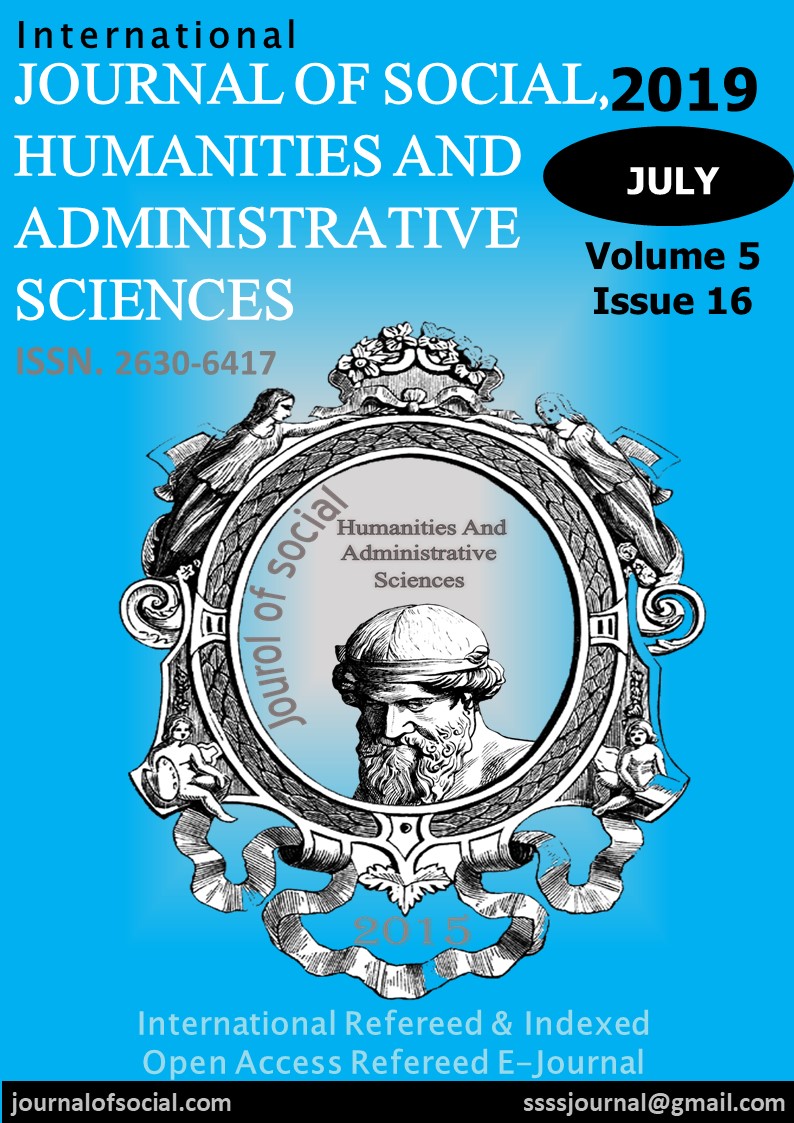THE IBIZA VIDEO AS AN EXAMPLE OF TODAY'S MEDIA FUNCTIONS BETWEEN INVESTIGATIVE JOURNALISM AND POLITICAL INFLUENCE
Author :
Abstract
Keywords
Abstract
In May 2019, a political scandal shook the Austrian Republic, leading to the withdrawal of high-ranking politicians and the dissolution of the government. Specifically, it was about secret video recordings, corruption and illegal party financing. But also about the acquisition and instrumentalisation of media and the influence on the published opinion. But the mass media also ensured that the affair was spread worldwide. Both the secretly recorded video and the national and international reactions to it were published. Communication scientists are therefore particularly interested in the role of the media in this matter. The scandal was conducted through and about the media, media were also the subject of secret negotiations as well as the most important actor in the distribution of the affair. This was followed by a political exchange of blows, not least via social media. Not only the party representatives, but also civil society supporters and opponents of the resigned government took the floor. It can therefore be said that the scandal is primarily about a media debate that took place in one form or another. Using the example of the so-called Ibiza affair, this work therefore raises the question of the function of mass media today and whether conventional attributions are still valid in the digital age.
Keywords
- Bachmaier Udo (2019): EU-Wahlkampfbrief der FPÖ als Realsatire der besonderen Art,
- Bachmaier Udo (2019): EU-Wahlkampfbrief der FPÖ als Realsatire der besonderen Art, Medienkultur (22.05.2019):
- http://www.medienkultur.at/neu/tag/kronen-zeitung/ [06.06.2019].
- Burkart, Roland (2002): Kommunikationswissenschaft. Wien/Köln/Weimar: Beltz Verlag (publisher) (4th Edition).
- Chill, Hanni / Meyn, Hermann (1996): Funktionen der Massenmedien in der Demokratie. In: Informationen zur politischen Bildung, Heft 260, 3/1996:
- https://www.bpb.de/system/files/dokument_pdf/NuN_06_Funktionen%20der%20Massenmedien.pd f [10.06.2019].
- Demokratiezentrum Wien (2019): Freiheitliche Partei Österreichs (FPÖ):
- http://www.demokratiezentrum.org/wissen/wissenslexikon/freiheitliche-partei-oesterreichs- fpoe.html [28.06.2019].
- Dragan Harald (2019): Politik auf Instagram- Wer sitzt vor Wahlkampf auf Social-Media-Thron? krone.at ( 23.06.2019): https://www.krone.at/1946454 [24.06.2019].
- Klatzer Jürgen, Agenturen (2016): | Stand: 19.10.2016,): FPÖ-Vorläufer VdU: Werben um ehemalige Nazis, Kurier vom 19.10.2016:
- https://kurier.at/politik/inland/fpoe-vorlaeufer-vdu-werben-um-ehemalige-nazis-als- kernagenda/226.197.875 [21.06.2019].
- Kontrast Redaktion (2019): Ibiza-Video könnte Koalition sprengen -Strache-Video in 10 Punkten + Zitate: Wie der FPÖ-Chef korrupte Deals einhängen wollte (online 17. 05. 2019):
- https://kontrast.at/strache-video-ibiza-russin/ [01.07.2019].
- krone.at (2017): Imprint and Disclosure:
- https://www.krone.at/37371 [21.06.2019].
- Lankes Gertrud über APA (OTS) (22.02.2018) ÖAK 2017: Die „Krone“ ist erneut die Nr.1- Tageszeitung in allen Kennzahlen
- https://www.ots.at/presseaussendung/OTS_20180222_OTS0082/oeak-2017-die-krone-ist-erneut- die-nr1-tageszeitung-in-allen-kennzahlen
- https://www.oeak.at/auflagedaten/download_auflagenlisten/ [21.06.2019].
- Lehngut Cornelius (2013): Waldheim und die Folgen, Ludwig Boltzmann Institut, Frankfurt-New York, Campus (publisher).
- Maletzke, Gerhard (1984): Bausteine zur Kommunikationswissenschaft. 1949–1984. Berlin: Volker Spiess (publisher).
- Manoschek Walter (1996): Verschmähte Erbschaft – Österreichs Umgang mit demNationalsozialismus 1945 bis 1955, in Sieder Reinhard, Steinert Heinz, Tàlos Emmerich (Ed.) (1996):Österreich 1945-1955: Gesellschaft-Politik-Kultur, Vienna Verlag für Gesellschaftskritik (publisher).Manoschek Walter/Geldmacher Thomas (2006): Vergangenheitspolitik, in: Dachs Herbert u.a. (Hrsg.): Politik in Österreich. Das Handbuch, Vienna, Manz Verlag (publisher).
- Marx Martina (2019): Wieso Heinz-Christian Straches Facebook-Seite für die FPÖ so wichtig ist, 31.05.2019:
- https://futter.kleinezeitung.at/strache-facebook-seite-fpoe/ [21.06.2019].
- Mayr Peter, Riss Karin (2019): Bilanz der Regierung Kurz: Türkis-blaue Spuren, Online-standard 9. Juni 2019:
- https://www.derstandard.at/story/2000104555086/bilanz-der-regierung-kurz-tuerkis-blaue-spuren[10.06.2019].Nittelfelder Klaus, Peternel Evelyn (2018) Operation Gleichklang: Wer für Kurz und Strache die Fäden zieht, im online-Kurier 11.02.2018:
- https://kurier.at/politik/inland/operation-gleichklang-wer-fuer-kurz-und-strache-die-faeden- zieht/310.435.684 [12.06.2019].
- Obermaier Frederik (2019): Strache-Video: das sind die Schlüsselszenen, Videoanalyse Süddeutsche Zeitung:
- Österreichische Webanalyse ÖWA (2019): ÖWA Plus 2018-IV veröffentlicht (04.04.2019) : http://www.oewa.at/plus/medienanalyse [20.06.2019].
- Özkececi Zehra (2018): Demokratie auf dem Prüfstand– Demokratie und Medien in der Türkei, Beau Bassin, Südwestdeutscher Verlag für Hochschulschriften (publisher).
- Ronneberger, Franz (1971): Sozialisation durch Massenkommunikation. Stuttgart, Enke (publisher).Ronneberger, Franz (1985): Integration durch Massenkommunikation. In: Saxer, Ulrich (Hrsg.):Gleichheit oder Ungleichheit durch Massenkommunikation? Homogenisierung - Differenzierung der Gesellschaft durch Massenkommunikation. Munich: Öhlschläger (publisher).
- Saxer, Ulrich (1974): Funktionen der Massenmedien in der modernen Gesellschaft. In: Kurzrock, Rupert (Hrsg.): Medienforschung. Berlin, Colloquium (publisher).
- Siegert Gabriele, Brecheis Dieter (2010): Werbung in der Medien- und Informationsgesellschaft - Eine kommunikationswissenschaftliche Einführung
- Standard-Redaktion, APA (2019): EU-Wahl-Ex-FPÖ-Chef Strache hat durch Vorzugsstimmen Anspruch auf ein EU-Mandat standard-online 27. Mai 2019:
- https://www.derstandard.at/story/2000103900148/eu-wahl-oevp-vorzugsstimmen-bringen- ueberraschungen [22.06.2019]
- Standard-Redaktion (2019a): Nur Einzelfälle – die lange Liste rechter Ausrutscher, online standard 23. April 2019:
- https://www.derstandard.at/story/2000072943520/nur-einzelfaelle-die-lange-liste-rechter- ausrutscher [22.06.2019].
- Standard-Redaktion (2019b): Rechtsextremismus -Küssel über Strache: "Da gab es einige lustige Auftritte", online-standard 16. Mai 2019:
- https://www.derstandard.at/story/2000103294525/kuessel-ueber-strache-da-gab-es-einige-lustige- auftritte-vielleicht [10.06.2019].
- Strache HC (2019): Facebook-Startpagehttps://de-de.facebook.com/HCStrache/
- https://www.facebook.com/HCStrache/videos/vb.74865038590/443605456395560/?type=2&theate r [21.06.2019].
- Strache HC (2019): Facebook-Startseite -Kommentar
- https://www.facebook.com/HCStrache/posts/10156865699848591?comment_id=2220888548224024&reply_comment_id=2220902698222609&comment_tracking=%7B%22tn%22%3A%22R%22% 7D [21.06.2019].
- Thurnherr Armin (2019) Zehn Gebote für die Kommunikation mit Rechten, Falter online 16/19 (16.04.2019):
- https://www.falter.at/archiv/wp/zehn-gebote-fuer-die-kommunikation-mit-rechten [22.06.2019]. Van der Bellen Alexander (2019): „So ist Österreich einfach nicht!“ Speech on 18.06.2019:
- https://www.bundespraesident.at/aktuelles/detail/news/erklaerung-neuwahl/ [29.06.2019].Verein Österreichische Gemeinschaft zur Feststellung der Verbreitung von Werbeträgern/
- Österreichische Auflagenkontrolle/ (Austrian Association for the Determination of the Disseminationof Advertising Media) Austrian Circulation Control (ÖAK) (Hrsg.) (2019): Circulation list 2018, Vienna.





